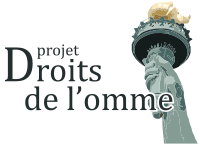'm a writer at Justmeans in the Health category. I am also currently the Director of Biomedical Research and Development at Gallifrey Systems. I finished my PhD in experimental psychology in 1997 and have worked covering legislative initiatives, building statistical models and in technology development. I'm an expert in the areas of health behavior and health policy. I believe that ideal economic and social policy is public health policy. I'm a huge proponent of commuting and public transportation. I don't own a car, but ride a bicycle almost every day. It's a lifestyle, and I love it! When I'm not doing this, I'm competing in triathlons and playing with my Australian Shepherd, Marley.
 Jonathan Todres, Associate Professor of Law at Georgia State University, has a unique perspective on human trafficking. Whether this complex crime is a public health problem or not, Todres views it as a treatable disease using the public health model of prevention first. His paper, Moving Upstream: The Merits of a Public Health Law Approach to Human Trafficking presents the argument that governments could attack the problem of human trafficking similarly to health hazards such as smoking, community violence and highway fatalities. While such a preventive, public health approach is insufficient by itself, this represents a method uniquely different from standard criminal law model currently in place in many countries. This is the first of a three-part series on the health consequences of human trafficking, along with government and non-governmental efforts to prevent the problem.
Jonathan Todres, Associate Professor of Law at Georgia State University, has a unique perspective on human trafficking. Whether this complex crime is a public health problem or not, Todres views it as a treatable disease using the public health model of prevention first. His paper, Moving Upstream: The Merits of a Public Health Law Approach to Human Trafficking presents the argument that governments could attack the problem of human trafficking similarly to health hazards such as smoking, community violence and highway fatalities. While such a preventive, public health approach is insufficient by itself, this represents a method uniquely different from standard criminal law model currently in place in many countries. This is the first of a three-part series on the health consequences of human trafficking, along with government and non-governmental efforts to prevent the problem.Forced labor. Sexual exploitation and forced prostitution. Debt bondage. Anything that constitutes the unlawful motion of men, women and children into slavery-like practices and conditions can constitute human trafficking. It is a global phenomenon, including within the United States, but does occur more frequently in underdeveloped countries and states where human rights are not as protected. The Institute of Medicine defines health as a complete state of physical, mental and social well-being, and human trafficking clearly does not mesh with that vision. Aside from gross repugnance, what are some of the public health concerns such a violation raises?
Individuals in forced labor situations often are channeled into poorly-regulated work environments. Agriculture, mining, manufacturing and construction industries using such workers may be overcrowded, have improper indoor environments, present harm to workers by exposure to toxic and carcinogenic materials and be generally unsanitary. These conditions are precisely what allow for the development and spread of diseases such as malaria, tuberculosis, and cholera depending on the location. This clearly constitutes an environmental health problem.Sexually-transmitted diseases (STDs) are a recognized public health problem. Not surprisingly, individuals involuntarily made participants in involved in exploitative work environments are at greater risk of contracting and spreading HIV and other STDs. This can occur within local populations, but can spread across international borders as humans are transported from one area to another.
Finally, the World Health Organization provides data showing that human trafficking has a specific population-based effect with prevalence considerably greater than other diseases, even in industrialized countries. Infectious diseases and diseases more specific to sanitation such as cholera that are more prevalent in underdeveloped countries are of minimal concern in the United States. For example, less than 5000 cases of tuberculosis were reported in the United States in 2007. In contrast, approximately 15,500 individuals are estimated to have been smuggled into the United States in 2007. From an epidemiological perspective, this constitutes a public health crisis.
The victims of human trafficking directly suffer illness, injury, violence, and mental disorders such as post-traumatic stress syndrome as result of the conditions in which they are forced to work and live. Combined with risks inherent even in transporting smuggled humans across borders, and one sees a total condition in which not only are victims directly harmed, but populations in proximity - even if uninvolved - are placed at risk as well.His paper, Moving Upstream: The Merits of a Public Health Law Approach to Human Trafficking can be downloaded free of charge from The Social Science Research Network Electronic Paper Collection at http://ssrn.com/abstract=1742953.
Image courtesy of AntonuSource: justmeans.com
Human Trafficking as a Public Health Crisis | Health



No comments:
Post a Comment